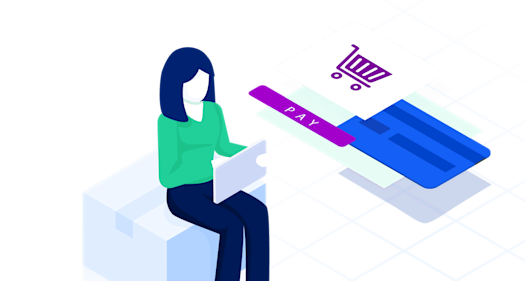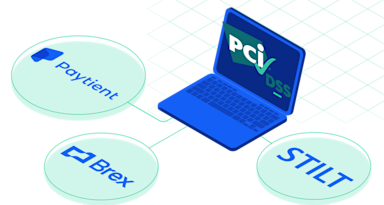Despite rising inflation, U.S. consumers are ready to spend money. In fact, they spent 18 percent more in March 2022 than they did during the same time period in 2020, which was 12 percent more than anticipated, based on pre-pandemic projections. Here's a brief look at how thousands of Fintechs & Paytechs are helping consumers maximize their capital mobility and continue to stimulate growth.
By May 2022, consumers had amassed $2.8 trillion more in savings compared to 2019. And they’re ready to start spending that savings. However, they are also increasingly aware that there are new and better ways to spend their money, whether in a strategic shift like “open banking,” a tactical upgrade such as “buy now, pay later” (BNPL), or a peer-to-peer money lending platforms like Zelle, CashApp, and Venmo.
Spending has increased, even with consumers who may have little savings. Today, credit cards often have deferred-pay or equal-pay financing. For example, at Amazon or Best Buy, common consumer items may be purchased with 0% interest for 18 months. Consumers love this stuff, and will likely demand even more of it in the future, even if they worry that they are growing dangerously dependent on a small number of major firms – and their limited card networks.
There are thousands of innovative new players in the fintech space. Far too many to mention everyone here, but one thing these startups have in common is that they are providing businesses with the capability to build a modern payment infrastructure. With these new tools, it is possible both to start and to scale a company – including by offering potential customers the funds they need to make purchases.
Fintechs Leading the Charge
One shining example is Unit, a revolutionary site for fintech firms. Unit provides an API-based platform for companies who want to build banking, launch card programs, and go to market in just weeks (not months or even years!). In today’s macroeconomic climate, speed and efficiency is critical for companies that need to grow their business now, and not waste time on building software products that can be purchased off-the-shelf. The market has noticed: both investors and clients have flocked to Unit, which was handsomely rewarded with a $100 million Series C round of funding in May 2022 (led by Jeff Horing of Insight Partners).
At its core, Unit’s mission is to make it easier for businesses to launch and to scale banking solutions, so they can expand financial accessibility. Businesses are building on Unit to create better banking solutions for consumers, freelancers, and businesses. Features such as early access to payments and automated tax calculations help end-users to access their money when they need it, and to simplify their finances – bringing more wealth to those who need it most.
Unit provides a complete set of banking solutions, including physical and virtual cards, bill pay, check deposit, and joint accounts that expand end-users’ financial access – all of which can fundamentally change the relationship that many consumers have with their purchasing power.
Buy Now Pay Later's Role
In order to change the relationship between people and their money, BNPL firms offer lending services that stimulate retail purchases – and by extension the economy as a whole. For example, BNPL stimulates retail purchases at the point of sale (e.g. your Klarna account at the Sephora counter), and during online checkout (get your car repaired today, and pay for it later with Sunbit). And there is no reason to feel trapped inside only one store; if you are missing the whole mall experience, Affirm has that too in its marketplace, where you can shop at thousands of stores from the comfort of your own home.
The pandemic created a tale of two economies. Some consumers were able to save money at a rate not seen since the 1960s. For others, who were laid off, or whose businesses were shuttered due to COVID, novel financial services like BNPL or equal pay, not only made purchases possible, but actually expanded the reach of their dollar – without the fees and interest charges associated with some credit cards, or the wait associated with layaway.
"So, for a brief period, consumers can double or even triple the reach of their money, magnifying the importance of each dollar, and providing upward mobility."
Companies like Zilch, a BNPL that raised an additional $50 million in 2022, helps consumers to cope with high inflation, positively affecting those who perhaps don’t have enough money in the bank even to make essential purchases.
The impact of BNPL has been tremendous – not only for consumer spending, but in facilitating exponential growth for merchants and the wider economy as a whole. By 2028, BNPL is expected to be a $2 trillion dollar industry.
Think of it this way: for BNPL shoppers, $100 lent to buy school supplies means not having to spend that $100 they were saving for groceries. So, for a brief period, consumers can double or even triple the reach of their money, magnifying the importance of each dollar, and providing upward mobility.
Capital mobility has the potential to help both the consumer and the merchant. Each side of the payment equation can benefit from enhanced choice and speed. On the client side, there is expanded access to underserved populations. On the business side, small firms have a better opportunity to compete with larger firms. As many merchants continue to acquire more customers, BNPL allows retailers to grow their top line by three to four percent. It also improves retailer savings by reducing the fees and costs associated with credit card purchases. However, only time will tell whether these lower costs will last: most BNPL retailers do not publicly disclose their merchant fees, but they typically range between 2% and 8% of a customer’s purchase amount. Therefore, as consumer agility is enhanced, small businesses may still have some hard choices to make at the point of sale.
At a Glance: Here are a few more shining examples of Fintech & PayTech businesses that are helping both the economy and helping consumers to navigate the changing financial landscape.
- Forage | Forage, who recently raised $22M over the summer, is a USDA-approved third-party payment processor (TPP) and a PIN provider that authenticates and processes EBT (Electronic Benefit Transfers) transactions for those who receive government assistance to buy groceries; and Forage is leading by example, helping a New York-based food hub become the first in the U.S. to accept SNAP EBT payments online.
- Zip | The fintech startup Zip, based in Australia, allows its clients a BNPL option to split online order payments into 4 equal installments. Zip now serves over 80,000 merchants on five continents, and boasts nearly 10 million customers.
- Zopa | A pioneering force in finance since 2005, Zopa built the first-ever peer-to-peer (P2P) lending company, and has now lent out over £6 billion to hundreds of thousands of clients in the UK.
The fintech industry has evolved rapidly over the last ten years. The 2010s became known for seamless, convenient solutions like contactless payments, which provided consumers with fast money. Ten years later, the evolution continues, setting off a new wave of fintech solutions that are making finance more accessible to businesses and consumers alike.
We Make Securing Payments Data Easy
Are you a Financial Services, Paytech or Insurtech company who’s (re)volutionizing the payments landscape? Let’s talk! We’d love to show you how Unit, Zilch, and hundreds of other BNPLs, Lending Platforms, Marketplaces, and Merchants leverage VGS to keep their data secure and keep their development teams on the fast-track to success.




